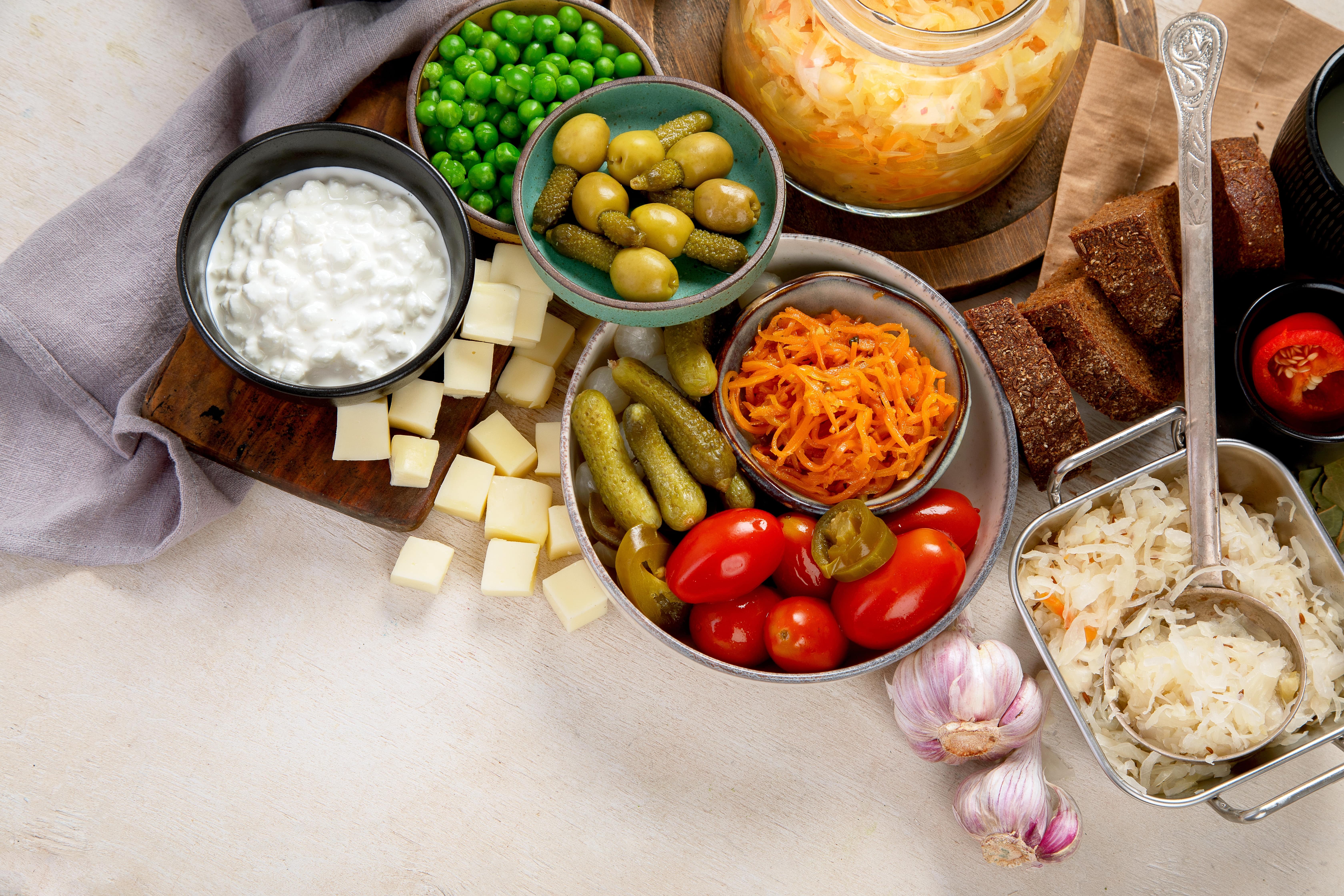The Benefits of Fermented Foods
Last Updated: 12 January 2026

Fermented foods have gained significant attention in recent years due to their potential health benefits. In this article, insights are provided by Vivere's Head of Nutrition, Yusra Serdaroglu Aydin, a registered dietitian with a background in nutrition, food engineering and culinary arts. Her approach is grounded in science and shaped by a strong understanding of personalised nutrition and the human microbiome.
This article explores the many benefits of fermented foods, how they work within the body and why including them in your diet could support long-term health.
Key Takeaways
Here are the five biggest takeaways from this article about the benefits of fermented foods:
Fermented foods contain beneficial bacteria that can support gut health and improve digestion.
They may enhance nutrient absorption and provide essential vitamins and minerals.
Regular consumption can strengthen the immune system and reduce inflammation.
Including fermented foods may support mental well-being through the gut-brain axis.
They offer a natural and accessible way to diversify your diet and promote overall health.
What Are Fermented Foods?
Fermented foods are products created through the process of fermentation, where natural bacteria feed on sugars and starches to produce lactic acid. This process preserves food and creates beneficial enzymes, B-vitamins and probiotics. Examples include:
Yoghurt
Kefir
Sauerkraut
Kimchi
Miso
Kombucha
How Fermentation Supports Gut Health
The gut is home to trillions of microorganisms that influence digestion, immunity and even mood. Fermented foods introduce live beneficial bacteria, known as probiotics, into the digestive system. These probiotics can help balance gut flora, improve bowel regularity and reduce symptoms of bloating or discomfort. A healthy gut microbiome is linked to better nutrient absorption and protection against harmful bacteria [1]. It’s important to note that temporary bloating or digestive discomfort is normal when you first start eating fermented foods regularly.
Nutritional Advantages
Fermentation enhances the nutritional value of foods. It can increase levels of certain vitamins, such as B12, and improve the bioavailability of minerals like iron and zinc. This means your body can absorb these nutrients more effectively. Additionally, fermented foods often contain compounds that may help reduce the presence of anti-nutrients, substances that can block nutrient absorption [2].
Immune System Support
A significant portion of the immune system is located in the gut. By promoting a balanced microbiome, fermented foods can indirectly support immune function. Probiotics have been studied for their ability to reduce the severity and duration of some infections. Regular consumption of fermented foods could help maintain a strong immune response, particularly during times of stress or illness [3].
Mental Wellbeing and the Gut-Brain Axis
Emerging research suggests a close link between gut health and mental well-being. This connection, known as the gut-brain axis, highlights the impact of gut bacteria on mood and cognitive function. Probiotics in fermented foods may play a role in reducing anxiety and supporting mental clarity [4]. While this is a growing area of research, adding fermented foods to your diet could be a simple step towards supporting both physical and mental health.
Practical Ways to Include Fermented Foods
Incorporating fermented foods into your diet can be straightforward. Start with small servings to allow your digestive system to adjust. To boost their effectiveness, consider pairing them with prebiotics to boost their effectiveness. Fermented foods you should consider adding to your diet include:
Yoghurt and kefir make excellent snack options
Sauerkraut or kimchi can enhance salads and main meals
Miso paste can be used in soups and sauces
Kombucha offers an alternative to sugary drinks
Always check labels for live cultures and minimal added sugars to maximise benefits. It’s important to note that some common fermented foods, like pickles and vinegar, may not contain probiotics and may not provide the same benefits.
Are There Any Risks?
For most people, fermented foods are safe and beneficial. However, those with compromised immune systems or specific health conditions (such as histamine intolerance) should consult a healthcare professional before making significant dietary changes. Some fermented foods may also be high in salt, so moderation is key, particularly for those managing blood pressure.
Nutritionist's Corner: Final Thoughts
“Fermented foods can be a powerful addition to a balanced diet. They offer benefits that go beyond basic nutrition, supporting gut health, immunity and mental wellbeing. Introducing a variety of fermented options can enrich your meals and contribute to long-term health”.
Vivere helps you take control of your health with personalised insights from state-of-the-art gut microbiome testing, nutritional guidance, science-backed supplements and expert support. Sign up today and start living better, for longer.
Sources
[1] Probiotics and their applications in functional foods: a health perspective - ScienceDirect
[2] Microbial Fermentation and Its Role in Quality Improvement of Fermented Foods - MDPI
[3] Probiotics Mechanism of Action on Immune Cells and Beneficial Effects on Human Health - PMC
Author

Yusra Serdaroglu Aydin, MSc RD
Head of Nutrition and Registered Dietitian
Yusra is a registered dietitian with a multidisciplinary background in nutrition, food engineering, and culinary arts. During her education, her curio...